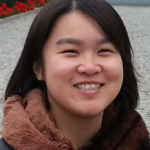
Course author and teacher:
LAI Suetyi
Guangdong University of Foreign Studies - China
The European Union in Food
EURASIA Thematic Areas: Cultural Issues
Number of Credits: 2
Level: BA
The course content was elaborated as a result of Dr. LAI Suetyi’s participation in the second EURASIA training round held in Krakow, Poland on January 20th – February 2nd, 2019, and in a short training session held in Sofia, Bulgaria, on 09-05 July, 2019.
The course was peer reviewed and validated by Prof. Dr. Maria Stoicheva and Assoc. Prof. Dr. Nikolina Tsvetkova from the EU Studies Department of the Faculty of Philosophy, Sofia University ‘’St. Kliment Ohridski’’.
This course was subjected to accreditation procedures at GDUFS – China and was successfully piloted as an elective course for BA students from all faculties of the university.
This new undergraduate-level course covers multiple disciplines from culture to economic, politics to science and technology. By innovatively bridging two seemingly unrelated but actually closely interlinked topics—the European Union and food—this course helps students to understand the EU as well as food in a new perspective.
• To help students to understand concepts and ideas of unity and diversity in the EU via seeing the similarities and differences in food culture among the EU member states.
• To introduce students to food-related policy and foreign relations of the EU.
• To enable students to understand more on cultural exchange between China and the EU.
• To train students in thinking deeper when seeing everyday-life things like food and drinks.
• get familiar with European integration, European culture and policies of the EU in a fun way;
• understand concepts and ideas of unity and diversity in the EU as well as cultural exchange between China and the EU.
• In-class discussion
• Students’ presentations.
